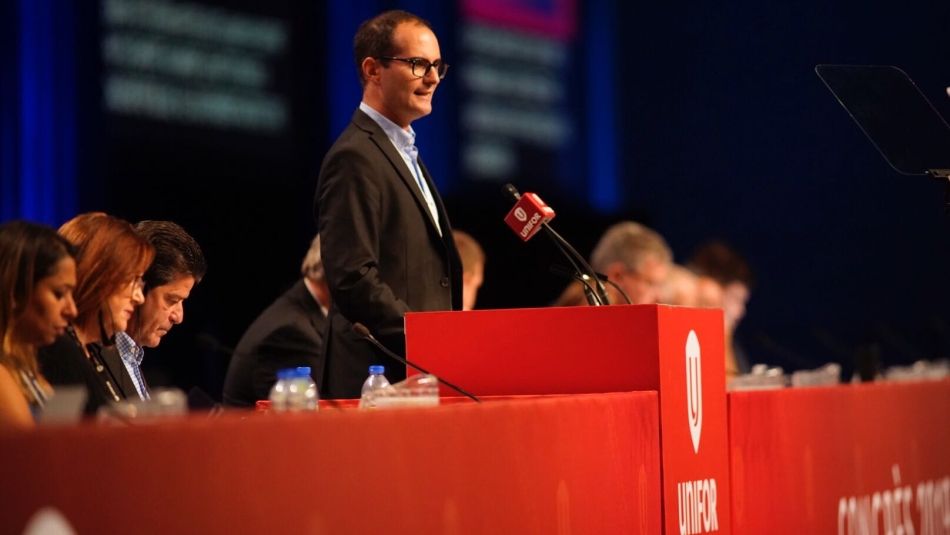
Share
Julien Tourreille, a PhD in political science with the Raoul-Dandurand Chair in Strategic and Diplomatic Studies at the Université du Québec à Montréal, presented an analysis of the “yellow vest” movement in France. He focused notably on the real impact of this crisis on the different political parties and social institutions, including trade unions. Where did this movement come from? Does it reflect a fundamental shift? What legacy will it leave, if any? These are just some of the questions he touched on.
“It seems to me that all the main ingredients of this yellow vest crisis can be found in the mixture of a feeling of being left behind, the unpopularity of political decision-makers and a deep discontent with government decisions,” explained Mr. Tourreille.
Despite the spectacular aspect of the numerous protests that have swept the country, the researcher considers that it is still a relatively modest social movement. He attributes this to several factors, starting with the violence that has marred many of the protests and alienated many people. That is why the movement has been unable to build capital and rally more people around it. Another explanation lies in the movement’s inability to produce a recognized leader.
The French context and what Mr. Tourreille calls the “doom and gloom” and typically defiant attitude of the French people have also acted as catalysts of this movement.
Nonetheless, the yellow vest protesters have managed to wring concessions worth some 10 billion Euros from the government. In doing so, they have at the same time helped reinforce the perception that labour unions have lost much of their power, since they not won any major victories in a long time.
Thus, while the yellow vest movement may not have benefited trade unions, nor has it succeeded in reshaping the French political landscape. For example, the movement has not garnered mass support; in fact, the contrary is true, as is reflected in the outcome of the European elections. Sympathizers of the movement have mainly thrown their support behind the Rassemblement National, a right-wing party.
But does this mean that the yellow vest movement is just a flash in the pan? No, according to Mr. Tourreille, who says that the phenomenon of the “yellow vests constitutes a serious warning to both the political establishment and other organizations, including unions.”
More fundamentally, Mr. Tourreille believes that “the yellow vest movement could herald the potential slide toward populism of French democracy, similar to what happened in the United States with the Tea Party, which paved the way for the election of Donald Trump.”


